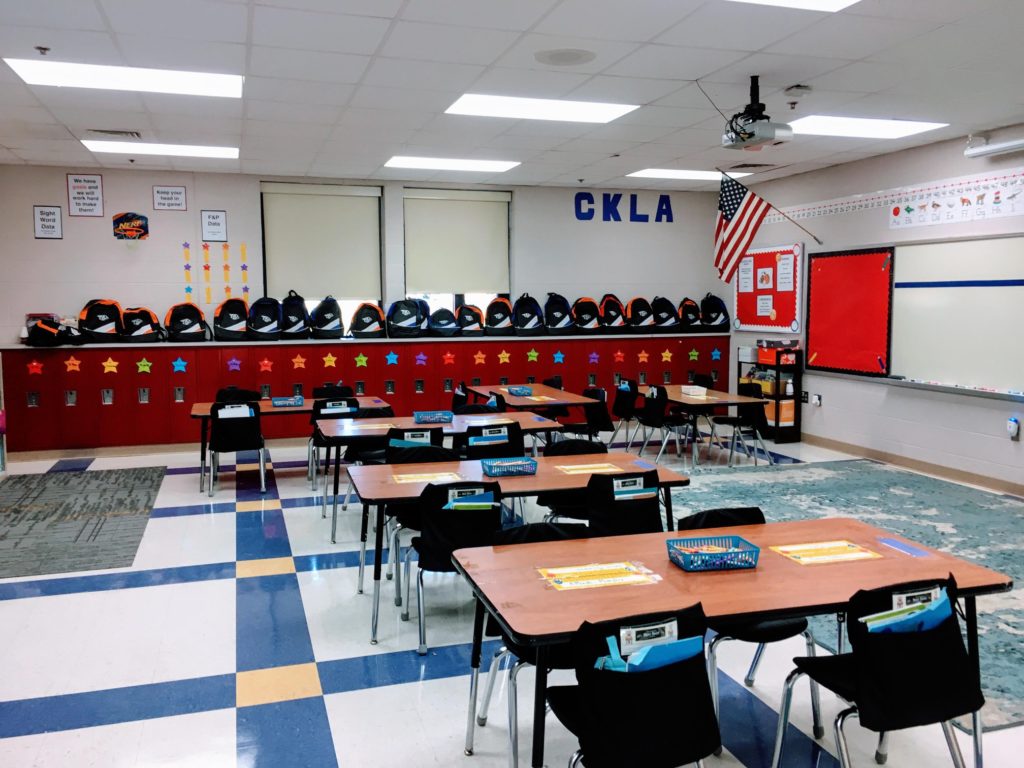
Nashville is preparing to take on a range of scenarios for getting kids back to school in the fall. A task force headed by Metro Schools Superintendent Adrienne Battle and Board of Health Chair Alex Jahangir released a plan Tuesday morning that would tie health rules within schools to the city’s phase of reopening.
The plan is based on guidance from local and national health and education experts.
The plan will serve as a guide to independent, public, Catholic and charter schools in Davidson County.
“Nashville has made a lot of progress, and we are optimistic for a return to some sense of normalcy in August, but we must be vigilant to ensure the safety of all when doing so,” says Battle. “A unified framework for all schools will give families a clear direction for where the city is going to be in the fall, with the flexibility necessary for individual schools and organizations to develop their own plans based on the needs of their students.”
Schools closed because of the coronavirus in mid-March at the recommendation of Gov. Bill Lee. The latest guidelines for getting students back to class are based on three phases of reopening.
- No Spread to Minimal Spread (Metro Reopening Phase 4): Schools will reopen under relatively normal circumstances.
- Minimal to Moderate Spread (Metro Reopening Phase 3): Schools will reopen with protocols to reduce contact between staff and students.
- Significant Spread (Metro Reopening Phase 2): School buildings will remain closed and remote learning would continue.
In other words, if the new school year began today while Metro is in Phase 2 of the reopening process, the district would continue engaging students remotely. But if things were to improve to Phase 3 by the first day of classes on Aug. 4, schools would reopen, but not without significant social distancing protocols.
This means students would be required to wear masks in common areas and hallways. In addition, exits would be limited, and large gatherings would be prohibited in compliance with health guidelines. Students would also be expected to eat meals in classrooms when possible. Additional safety measures may include:
- Arranging classroom desks to face the same direction
- Keeping windows open
- One-way foot traffic signs
- Staggered movements during dismissals
- At home or in-school screenings and temperature checks
- Limiting parent access to buildings
- The implementation of quarantine offices for staff and students who fall ill at school
- Limited after-school activities
- Eliminating off-site field trips
In the case of transportation and busing students, riders would be required to wear face masks and follow social distancing guidelines. There would also be an expectation for seats and handrails to be wiped down with an EPA-approved disinfectant, before and after each ride.
“We’ve learned a lot about COVID-19 over these last three months, and we are sure to learn more by the time schools re-open,” says Dr. Jahangir. “We must all be forward-thinking in our approach and ready to adapt and respond to changing circumstances so that we can ensure a safe and high-quality learning environment for all students in Nashville.”
Under the provided guidelines, individual districts and schools will be expected to develop their own implementation plans for operating under the three provided scenarios.
Metro Schools, which is expecting to purchase 90,000 laptops and 7,000 internet hot spots for its students, will release its specific reopening plan the week of July 6. At that time, the district says, they hope to have more information on the scenario they will start with.
This is a developing story.

